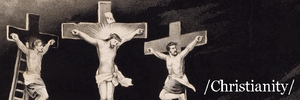Thoughts on the Taiping Heavenly Kingdom and Hong Xiquan?
https://en.wikipedia.org/wiki/Hong_Xiuquan
>Hong Xiuquan (洪秀全), born "Hong Huoxiu", was the third and youngest son of a poor[how?] Hakka family.[2][3] Some sources claim his family was "well to do".[4] He was born in Fuyuan Springs, Hua county (now part of Huadu District, Guangzhou), Guangdong to Hong Jingyang, a farmer and elected headman, and Madam Wang.[5][6][7] He and his family moved to Guanlubu Village shortly after his birth.[8] Upon marrying his wife Lai Xiying, Hong received the courtesy name "Renkun."[9]
>Hong showed an interest in scholarship at an early age, so his family made financial sacrifices to provide a formal education for him, in the hope that he could one day complete all of the civil service examinations.[2] Hong began studying at a primary school in his village at the age of five.[10] He was able to recite the Four Books after five or six years. He then took the local xiucai preliminary civil service examinations and placed first.[11] A few years later, he traveled to the nearby city of Guangzhou to take the imperial examinations.[12] He was unsuccessful and, his parents being unable to afford to continue his education, he was forced to return to agricultural work.[13] The next year, he accompanied a wealthy schoolmate elsewhere for a year of study and became a village schoolteacher upon his return.[14]
>In 1836, at the age of 22, Hong returned to Guangzhou to retake the imperial examinations.[15] While in Guangzhou, Hong heard Edwin Stevens, a foreign missionary, and his interpreter preaching about Christianity.[16] From them, Hong received a set of pamphlets entitled "Good Words for Exhorting the Age", which were written by Liang Fa, Stevens's assistant, and contained excerpts from the Bible along with homilies and other material prepared by Liang.[17] Supposedly, Hong only briefly looked over these pamphlets and did not pay much attention to them at the time.[2] Unsurprisingly, he again failed the imperial examinations, which had a pass rate of less than one percent.[18]
>In 1837, Hong attempted and failed the imperial examinations for a third time, leading to a nervous breakdown.[19] He was delirious for days and his family feared for his life.[20] While convalescing, Hong dreamt that he visited Heaven and discovered that he possessed a celestial family distinct from his earthly family, which included a heavenly father, mother, elder brother, sister-in-law, wife, and son.[21] His heavenly father, wearing a black dragon robe and high-brimmed hat with a long golden beard, lamented that men were worshiping demons rather than him and presented Hong with a sword and golden seal with which to slay the demons infesting Heaven.[22] Hong dreamt that he did so with the help of his celestial older-brother and a heavenly army.[23] The father figure later informed Hong that his given name violated taboos and must be changed, suggesting as one option the "Hong Xiuquan" moniker ultimately adopted by Hong.[24] In later embellishments, Hong would declare that he also saw Confucius being punished by Hong's celestial father for leading the people astray.[25] His acquaintances would later claim that after awakening from his dreams Hong became more careful, friendly, and open, while his pace became imposing and firm and his height and size increased.[26] Hong stopped studying for the imperial examinations and sought work as a teacher. For the next several years Hong taught at several schools around the area of his hometown.
>In 1843, Hong failed the imperial examinations for the fourth and final time.[27] It was only then, prompted by a visit by his cousin, that Hong took time to carefully examine the Christian pamphlets he had received.[28] After reading these pamphlets, Hong came to believe that they had given him the key to interpreting his visions: his celestial father was God the Father (whom he identified with Shangdi from Chinese tradition), the elder brother that he had seen was Jesus Christ, and he had been directed to rid the world of demon worship.[29][30] This interpretation led him to conclude that he was the literal son of God and younger brother to Jesus.[31] In contrast to some of the later leaders of his movement, Hong appears to have genuinely believed in his ascent to Heaven and divine mission.[32] After coming to this conclusion Hong began destroying idols and enthusiastically preaching his interpretation of Christianity.[2] As a symbolic gesture to purge China of Confucianism, he and the cousin asked for two giant swords, three chi (about 1 metre) long and nine jin (about 4.5 kg), called the "demon-slaying swords" (斬妖劍), to be forged.[33]
